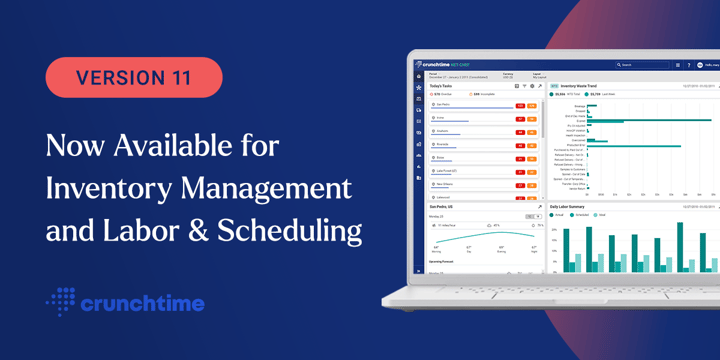
- Home
- Crunchtime Blog
- Insider take: Restaurant Labor Laws: Intra-franchisees and non-compete clauses

Insider take: Restaurant Labor Laws: Intra-franchisees and non-compete clauses
Restaurant labor laws: Intra-franchisee non-compete clauses (NY Times)
By Amanda White, Manager, Business Analysis for CrunchTime!
Being the in the restaurant software business, sometimes I see relevant restaurant labor law articles in the news I share them with other CrunchTimer’s who might be interested. Here’s one such article from The New York Times, and it’s kicked off with the opening sentence: “The American fast food industry is built on two pillars: cheap hamburgers, and cheap labor.” Naturally, I was hooked. Check out the full article here: Why Aren’t Paychecks Growing? A Burger-Joint Clause Offers a Clue

This article is about the equivalent of non-compete clauses, but between franchisees (or franchisee-vs-franchisor) of the same brand. Franchisees don't like losing their trained employees to the next location down the street that might be owned by a different franchise entity, so franchise contracts often include language that prevents them from hiring employees away from locations outside their franchise entity. Makes sense, right? Hold on… because there are complications, of course.
The article goes on to try to answer: 1) whether or not that's legal; and 2) if this is a cause of wage stagnation in the industry due to worker immobility.
One thing I thought was particularly interesting was a chart that shows how common this is by industry, which includes both Quick-service restaurants (QSR) and Restaurants (sit-down). QSR surveyed 39 chains, which included 31 who have this clause and 8 who don't; for sit-downs, 5/5 of the chains surveyed had it.
chains surveyed had it.
What does this mean for CrunchTime customers?
I have two key takeaways for us from this article:
1) The way we handle cross-franchise employees in our system is good.
We do not allow a single employee in CrunchTime restaurant software to work across multiple franchises; rather, if they want to work at more than one franchise entity they must be entered as a separate employee record in each URL. This is great because there's no easy way for an employee to pick up work at another franchisee's branch; a manager can't just go in and, oblivious to the contract they signed, add an alt location that doesn't belong to them and unwittingly cause the rule to be broken.
2) The eternal "are franchises separate companies or parts of one big company" argument is only heating up.
The lawyers suing McDonald’s and CKE are trying to use the distinction Mr. Puzder made against the companies, arguing that these separate companies within one brand are signing illegal anti-competitive agreements with one another. The lawyers in the CKE case have cited guidance issued by federal officials in October that indicated it was against the law to, among other things, “refuse to solicit or hire” other companies’ employees.
“They’re either going to have to say, ‘We are separate from our franchisees,’ or ‘We’re one integrated entity,’” said Michael Rubin, a lawyer for former McDonald’s workers who are suing the company separately over accusations of wage violations.
Where possible, CrunchTime tries to fall on the side of "separate companies," because that is where the franchisors generally want things to come down. When we adhere to this philosophy, we actually help them make the "separate companies" argument.
I thought this was especially interesting because it touches on both labor law and franchising, two vital pieces of CrunchTime functionality. I hope you found it enlightening as well!
Share this post
Related


New Features for Inventory Management and Labor & Scheduling - Fall 2023

